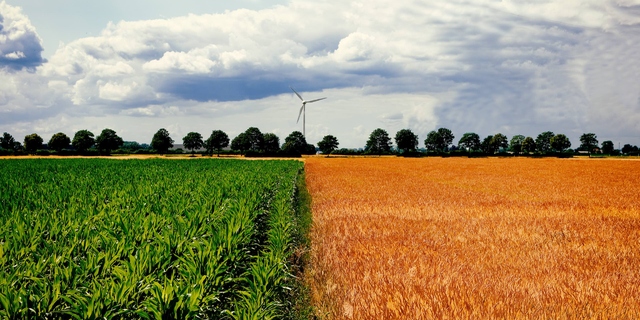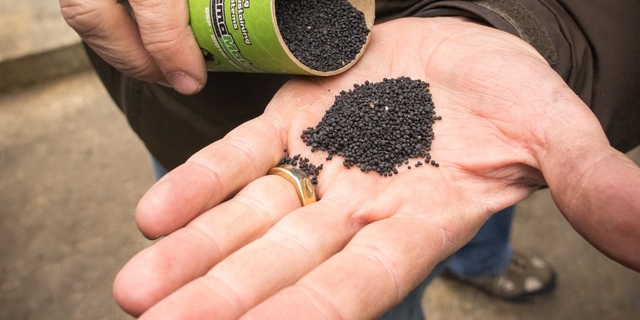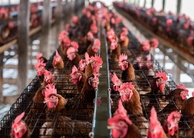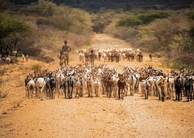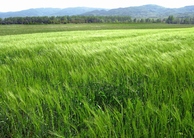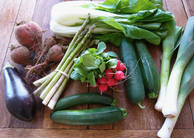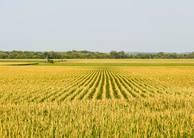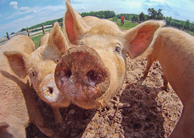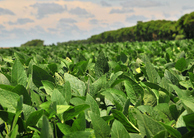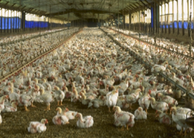|
Agriculture (tagged articles)
The keyword Agriculture is tagged in the following 20 articles.
2021, Vol. 13 No. 05
Some scholars of American history suggest the institution of slavery was dying out on the eve of the Civil War, implying the Civil War was fought over more generic, philosophical states' rights principles rather than slavery itself. Economic evidence... Read Article »
2021, Vol. 13 No. 01
This paper examines the intricacies of factory farming by analyzing its social, political, economic, and environmental impacts in an age of capitalist consumption. Factory farming has become a pervasive institution with which most Americans engage... Read Article »
2017, Vol. 9 No. 02
The necessity to grow crops faster and more efficiently has long been a goal for the Agriculture industry. Now, through the development of GMOs, this goal is being achieved. However, many critics doubt the reputation of GMOs, instead arguing that... Read Article »
2016, Vol. 8 No. 12
Biochar is biomass that has been converted into charcoal through the pyrolysis process. Biochar is applied into soils for carbon sequestration or for improving soil fertility. The carbon bonds in biochar are very stable and do not break down easily... Read Article »
2016, Vol. 6 No. 1
For the past four decades, pastoralist activities have been pushed to marginal areas in several regions of Ethiopia. This change was initiated by the Agrarian Land Reform Proclamation of 1974. Pastoralist activities prior to the agrarian reforms... Read Article »
2016, Vol. 2016 No. 1
This paper explores the differing effects that conventional and organic Agriculture have on soil ecosystems. The findings are primarily based on a review of published literature found in journal articles and government reports. Conventional Agriculture... Read Article »
2015, Vol. 7 No. 09
Energy researchers have recently taken interest in the use of switchgrass (Panicum virgatum) as a biofuel. Arbuscular mycorrhizal fungi (AMF), which are known to increase plant acquisition of nutrients through a symbiotic relationship, may be used... Read Article »
2015, Vol. 5 No. 1
As a predominantly rural and densely populated developing nation, India is positioned at the vanguard of the global debate surrounding GMOs. As concerns related to food security mount, what transpires in India is of great importance. Citizens' collective... Read Article »
2014, Vol. 10 No. 3
When browsing the grocery aisle, consumers are bombarded with and confused by a myriad of special labels. “Organic,” “whole grain,” “all natural,” and “cage-free,” are just some of the more popular... Read Article »
2014, Vol. 4 No. 1
There is a growing public concern over the genetic alteration and use of chemicals in conventionally produced Agriculture. The perceived risk of such agricultural production has prompted the rising popularity of organic alternatives in both developed... Read Article »
2014, Vol. 6 No. 08
While the regulation of bioengineered Agriculture began at the same time in both the United States (U.S.) and the European Union (EU), the political and economic landscapes surrounding this industry on each side of the Atlantic diverged significantly... Read Article »
2014, Vol. 10 No. 3
A genetically modified (GM) crop is defined as a recombinant-deoxyribonucleic acid plant, in which genetic material has been changed through in vitro nucleic acid techniques (Food and Agriculture Organization of the United States, 2014). Food and... Read Article »
2014, Vol. 10 No. 3
Although current methods of pig farming now allow cheap pork availability to consumers throughout America, they come at high costs. Through interviews with Ohio pig farmers and research on current and historical developments in the industry, this... Read Article »
2014, Vol. 10 No. 3
Soybeans first appeared on the world stage when Chinese farmers began cultivating them around 1100 B.C. (North Carolina Soybean Producers Association, Inc.). The plant quickly spread to the rest of Southeast Asia and became an integral part of the... Read Article »
2014, Vol. 6 No. 04
The copious amounts of forgotten and disregarded food that are tossed mindlessly into our landfills are a global travesty of massive proportions. Americans alone waste enough food in a day to transform the Rose Bowl, a football stadium capable of... Read Article »
2013, Vol. 3 No. 1
Regardless of the fact that we have long been warned of the negative impact of industrial farming, rural communities are being wiped out as local producers, like Riverbend Gardens, are put at risk in favour of urban expansion. The industrial food... Read Article »
2013, Vol. 3 No. 1
The first growing season of Edmonton’s Parkallen Community Garden began in Spring 2012. We transformed an unused strip of lawn bordering our hockey rink into a loamy, thriving “edible food forest” of corn, beans, squash, kale,... Read Article »
2014, Vol. 2013/2014 No. 1
The concept of food security is dynamic; it has been changing to incorporate new ideas over the years since it was established. In this piece, I will argue that if cultural acceptability is to be added as a tenant of food security then so must sustainability... Read Article »
2013, Vol. 5 No. 10
Large-scale rural to urban migrations have been occurring in India in record numbers within the last thirty years, inflating the populations of urban centers, such as Delhi and Mumbai. Within these streams of migrations, the number of youth leaving... Read Article »
2011, Vol. 3 No. 06
“The Worst Mistake in the History of the Human Race” is the embodiment of anti-progressivist theory. Jared Diamond challenges the claim “that human history over the past million years has been a long tale of progress,” with... Read Article »
Expedited Article Review
Submit an article and get a decision fast.
If you need a fast decision, INQUIRIES Journal offers expedited processing of your submission for a small fee. Depending on the expedited review option you choose, you can receive a decision in as few as 5-days.
In addition to a shorter review period, the fee supports the journal's continued operation and open-access publishing model. Standard submissions are always free. Submit Now » - Submit an Article to Inquiries Journal -
|



